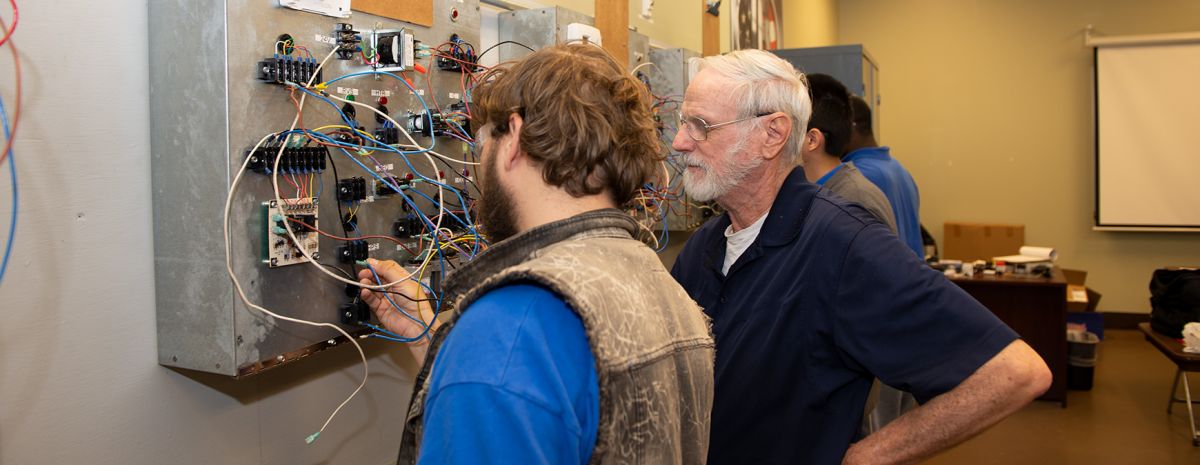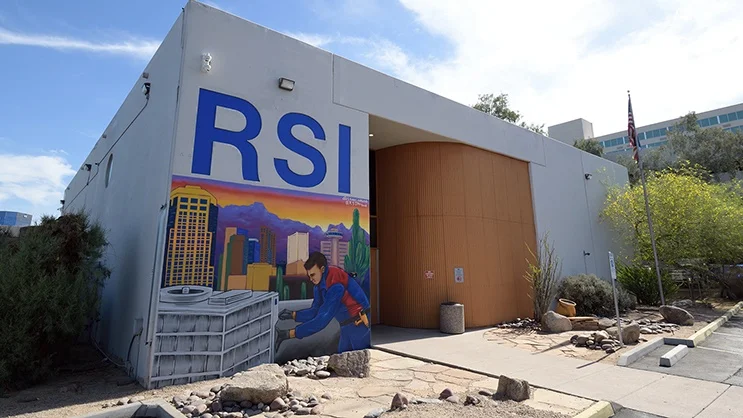RSI is a Great Training Option for Everyone
Learn more about how we can prepare you to advance your career.
Indoor air quality becomes a big deal when you’re a homeowner trying to protect your family from airborne viruses and pathogens.
The good news is that Air filters play an integral role in an HVAC system’s ability to remove pollutants, making homes safer and the air cleaner.
The HVAC industry has developed different ratings to make it easier for both providers and homeowners to make smart decisions about indoor air quality.
If you’re going to become an HVAC technician, it’s important to familiarize yourself with these ratings.
Let’s look at what MERV ratings are, how they work and whether or not MERV filters are effective at removing viruses from the air.
Get Started on the Path to a New Career
Fill out our form to learn how we can help you change your life.
What Is the Best MERV Rating for Air Filters?
Understanding air filters is important for people in HVAC training preparing to become knowledgeable HVAC technicians.
One of the most important factors related to filters is their efficiency rating. A widely adopted rating in the HVAC industry is known as the Minimum Efficiency Reporting Value (MERV).
Designed by the American Society of Heating, Refrigerating and Air-Conditioning Engineers (ASHRAE), MERV has become the standard way to rate a filter’s ability to trap particles of various sizes
How Do MERV Filters Work?
MERV filters work just like any other filter: trapping pollutants as air passes through them.
It’s not a different type of filter but a specific rating measuring any filter’s ability to trap particles of a particular size.
More specifically, MERV ratings denote a filter’s ability to filter out particles measuring between 0.3 and 10 microns. The better the MERV rating, the more efficient a filter is at trapping finer particles.
How Do I Know What MERV Filter to Use?
With so many different MERV filter options, it’s sometimes difficult to know where to begin when outfitting an HVAC system.
You might assume that a higher MERV rating is better since it’s capable of trapping more pollutants, improving the indoor air quality of a home.
But a higher rating also means a thicker filter. This translates into higher energy bills, since an HVAC system will have to work harder to force air throughout the home.
So, what is a good MERV rating for air filters? Although it always depends on the specific home and the needs of the homeowners, a MERV rating between 5 and 8 is typical for a residential home.
Filters in this sweet spot have no trouble trapping most of the contaminants in your home, including dust, pet dander and pollen.
Is MERV 13 Too High?
ASHRAE currently recommends a MERV rating of 13 or higher for residential homes.
The correct rating, however, will depend on the HVAC system you’re dealing with at the time. As mentioned before, using a MERV rating that’s too high for a unit’s output can increase energy bills.
Given the systems that many homeowners use, MERV 13 is most likely too high for a good number of residential properties.
Can a MERV Filter Protect against Viruses?
The COVID-19 pandemic sparked a lot of interest in HVAC filtration, MERV ratings, and air scrubbers. Homeowners became eager to protect their families from potentially hazardous contaminants in the air.
So do MERV filters protect against viruses? To answer that question accurately, you first have to know what size particles are of concern.
Generally, the droplets released during a cough or sneeze are fairly large, ranging from 10 to 100 microns in size. For scale, 1,000 microns is one millimeter in diameter.
These heavier particles aren’t a factor for a filter’s efficiency, since they tend to fall out of the air quickly. It’s the smaller droplets that are a potential concern for transmission as they hang in the air longer.
A Study Published in the New England Journal of Medicine found that smaller SARS-CoV-2 particles could remain in the air for up to three hours. That’s a long time!
It might sound alarming, but it’s these particles that an efficient filter can actually help rid from the air. Smaller particles that can float in the air carrying potentially dangerous viruses tend to measure just 10 microns or less.
MERV ratings make it easier to determine which filters are effective at filtering these virus-carrying droplets out of the air.
For example, a filter with a MERV 7 rating is capable of trapping half of particles measuring 3.0 to 10 microns and around 20% of those measuring 1.0 to 3.0 microns. As mentioned earlier, the higher the MERV rating, the better it is at trapping smaller particles—even those that might be carrying viruses.
Can a MERV Filter Protect against Viruses?
As an HVAC technician, it’s important to remain well-versed in MERV ratings and their capabilities to make effective and fitting suggestions when changing filters for clients. Chances are, homeowners you work with will be keen to understand how their HVAC systems impact their home’s indoor air quality.
Stay Current on the HVAC Industry
Interested in learning more about indoor air quality trends? Take a look at how ultraviolet irradiation works in HVAC systems. Staying ahead of trends can help you come across as more knowledgeable and invested during job interviews!
HVACR Training Program
The 6-month HVACR Training program is designed to train and prepare HVAC students for entry as service and maintenance technicians in jobs that utilize technologies employed in the fields of heating, ventilation, air conditioning and refrigeration (HVACR). Courses focus on the fundamentals of comfort systems and refrigeration. Contact us today to learn more.
Additional Sources




